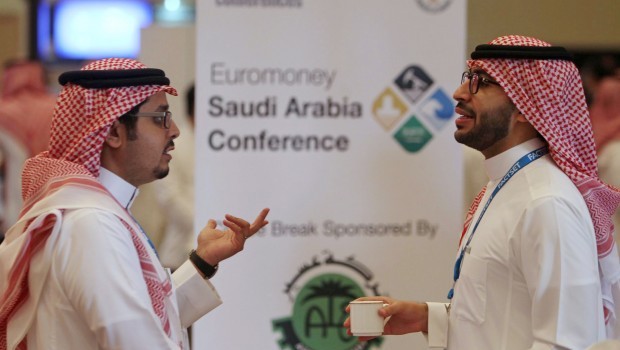
Attendees speak to each other during the Euromoney Conference in Riyadh May 8, 2013. (REUTERS/Faisal Al Nasser)
The organization, which monitors economic and financial trends within states as well as internationally, said that overall growth in Saudi Arabia was strong and that it expected this to continue, but called for reforms to improve the country’s overall economic position.
The head of the IMF mission to Saudi Arabia, Tim Callen, said that overall GDP growth was predicted to be 4.4%, with non-oil private sector growth expected to be around 7.6% this year.
“Saudi Arabia has been one of the best-performing economies of the G20 in recent years, with the average rate of real GDP growth during 2008–12 third behind China and India,” he said.
“The fiscal position is also very strong with the lowest debt-to-GDP ratio and the highest fiscal balance among the G20 economies.”
He added that the country’s budget surplus is likely to be smaller than last year due to decreased oil production and a decline in oil prices, but that it would still be “substantial.”
The report also noted some of the economic challenges facing Saudi Arabia, particularly the need to create jobs, increased domestic demand for energy and the growing risk of inflation.
While reporting that the government is undertaking reforms to tackle these problems, Callen said that the IMF believes price rises will be necessary to curb the growth of domestic energy consumption.
“International experience with energy price reform suggests that it needs to be well-planned, phased and clearly communicated. It is also essential to implement mitigating measures to protect lower income groups,” he added.
He also said that the government of Saudi Arabia is acting correctly in slowing public spending after large increases in the last two years, and called on it to continue to exercise restraint in order to prevent increases in inflation, which increased slightly to 4% in the second half of 2012.
